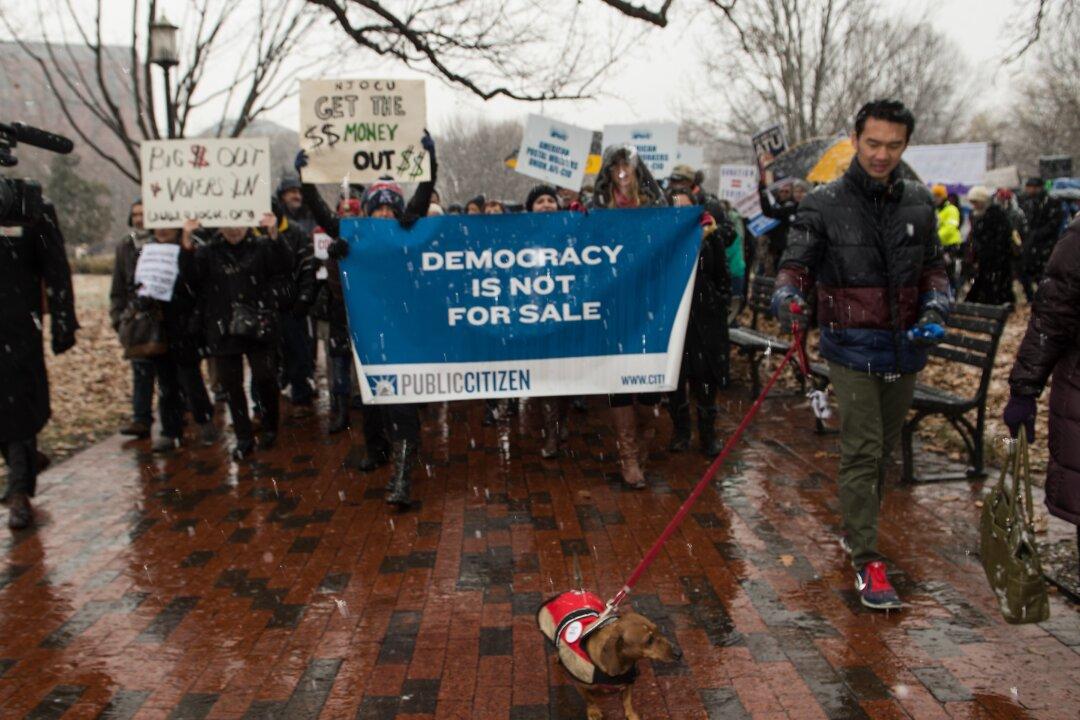The 2010 Citizens United Supreme Court decision didn’t, contrary to repeated claims by Democrats and progressive activists, enable corporations to buy favorable tax policies, according to a study published by the National Bureau of Economic Research (NBER).
“Across all outcomes, we find no statistically or economically significant effects of independent political contributions on tax outcomes. For most tax rates, we find that we are able to reject tax increases and decreases greater than 10-20 percent,” the authors of the study state.





